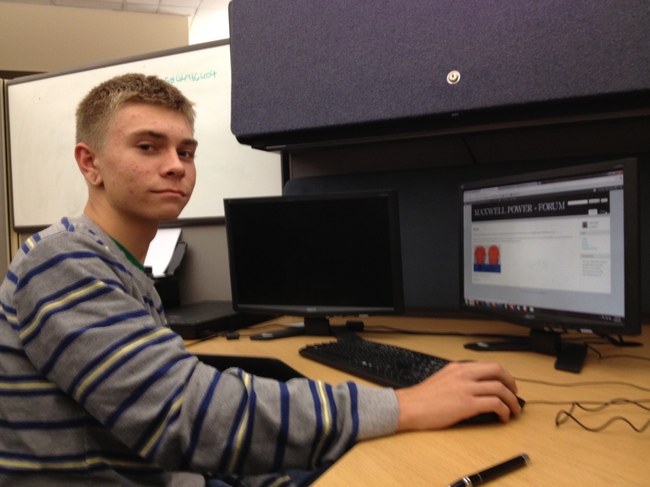Just down Highway 101 in Mountain View, California is the Plug & Play Tech Center, a venerable company in these parts. Where San Francisco's Rocketspace is all open plan and brick walls, the start-ups in Plug & Play are cocooned in booths, a legacy of pod culture. And yet it is a business centre on steroids. When we arrive on the Orange blogger bus tour there are at least three other visiting groups criss-crossing the reception area, looking up to the walls adorned with the logos of former tenants (who have raised $1bn in second round funding while at Plug & Play).
Every day the visitors come, from governments and corporates to journalists and investors. Plug & Play positions itself as a temporary home for startups that are post-seed, pre-A stage funding. Companies here have an idea, have built and demoed it and ready to move it to the next level.
As well as providing office space, the management facilitates meetings with venture capitalists and increasingly enterprises who want to tap into the software being built between the carpeted cubicles.This represents a shift in the way that large companies see innovation: rather than running their R&D skunk works in a business park in the middle of nowhere, why not interface directly with the bright guys who might save you a lot of money?
Paypal, Sprint, Alcatel-Lucent, Samsung, Bestbuy, EMC, Blackberry, Huawei, Microsoft, Turkcell have all camped out in Plug & Play to buy new tech or license it. Occasionally they might even just acquire the startup in its entirety.
One of the key initiatives going on a the moment is the connected car. Plug & Play reviews hundreds of start-up elevator pitches and cherry picks projects in key topics where it thinks there is commercial demand. Volkswagen, Chrysler and Mercedes are all queuing up to meet these young entrepreneurs.
Occasionally, Plug & Play is more than landlord. It will strategically invest in companies it likes. Each month, they may plough $50-$500k in up to three companies. And sometimes they get it spectacularly right: Dropbox is one of their investments.
Youth dominates here - as it does at most accelerators and incubators. This is the architypal Generation Y uniform that is ever present in Downtown...hoodies, sneakers and skinny lattes. The youngest entrepreneurs here is Alex Plam, founder of Maxwell Power, an online retailer specialising in survival gear for outdoor enthusiatics. His USP is it that he offers major discounts for search & rescue volunteers.
(It's often remarked that the US is such a big market, you really don't need a grandiose plan. You can have a niche business model and still be very rich).
What's interesting about Alex is he's just 15. His schooling is online and his dad is also an entrepreneur, working on other side of the building. They do the 2 hour commute to work together. No doubt that work and homework are frequent topics of discussion as they crawl through the morning rush.
But not all of the Generation Y entrepreneurs in Plug & Play can call upon a father who has the experience of starting his own and then exiting a software company.
To support them, there is a pool of Baby Boomers with nous and experience. These are former executives of major IT firms who are now available for hire as advisors or even as a founding CEO. (Consider the role that Eric Schmidt played for the precocious founders of Google). These veterans are called "executives in residence".
One of those is Bow Rodgers, a former president of Sprint. "People here are getting younger and younger. What they often need from someone like me is tough love. They need help from people like me to help them pivot (change strategy when Plan A goes awry)."
But there is a huge tolerance of mistakes and immature ideas. Canice Wu, president of Plug & Play, said "We encourage failure. If we don't get it right, we try again. Eventually we will hit one out of the park."
Stewart

I've been writing about technology for nearly 20 years, including editing industry magazines Connect and Communications International. In 2002 I co-founded Futurity Media with Anthony Plewes. My focus in Futurity Media is in emerging technologies, social media and future gazing. As a graduate of philosophy & science, I have studied futurology & foresight to the post-grad level.
